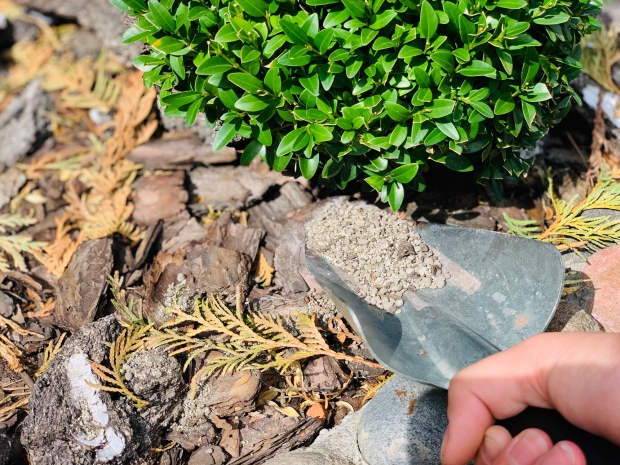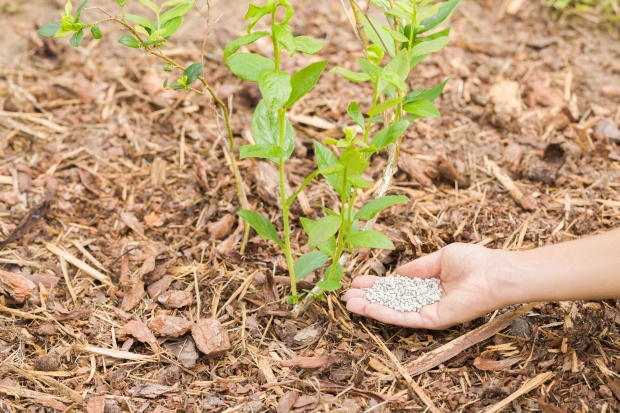Why and How to Feed My Shrubs?
The shrubs in your yard are living investments that need care and attention to grow in value. This care includes correct watering, pruning, and fertilizing to promote optimal growth.
Fertilizing shrubs in your landscape is different than taking care of flowering ornamentals or garden vegetables. They are on a schedule similar to the larger trees in your yard, but there are extra considerations to take into account when figuring out when to feed them.

Why Do Plants Need Regular Fertilization?
Plants need specific nutrients to live. These nutrients don’t give the plants energy directly but aid in metabolic processes like respiration and photosynthesis that drive growth. The essential nutrients are also components of important plant parts such as cell walls, amino acids, and chlorophyll.
Most of these nutrients are taken in from the soil as needed. The challenge is that suburban and urban landscapes are very different from native soils in forests and woodlands. Landscaped areas have little nutrient content because the ground’s thick layer of nutrient-rich topsoil was removed or altered during home construction.
Over time, plants pull nutrients from the soil, reducing levels, often to deficient levels. If you don’t reintroduce some of these elements back into the root zone, you will see negative impacts on your plants. They may have smaller leaves, discolored foliage, or poor growth overall.
Do My Shrubs Need Fertilizer?
The first step is determining if your shrubs need fertilizer. One of the best ways to determine this is by having your soil tested to analyze its nutrient content.
However, you also need to consider where your shrubs are growing.
- If plants are growing in the middle or on the edge of a regularly fertilized lawn, they don’t need to be fertilized separately. Their roots take in some of the lawn fertilizer.
- Shrubs growing in planting beds—especially ones with sandy soil or little organic matter—may need fertilizer.

How Often Should I Fertilize My Shrubs?
It is commonly recommended to only fertilize your shrubs every two to three years. This loose guideline should be followed as a bare minimum.
The best practice is to fertilize your shrubs in early spring, as they begin actively growing for the season. There isn’t any need to fertilize them again until the following spring.

Whatever you do, make sure you aren’t overfertilizing them. Too much fertilizer can decrease their growth and leave your shrubs susceptible to insect pests and diseases.
The Best Type of Fertilizer for Shrubs
Unless a soil test reveals adequate phosphorus and potassium levels, look for a fertilizer higher in nitrogen. A 12-4-8, 12-6-6, or 16-4-8 nutrient ratio is appropriate, whether in an all-purpose formulation or a shrub-specific fertilizer.